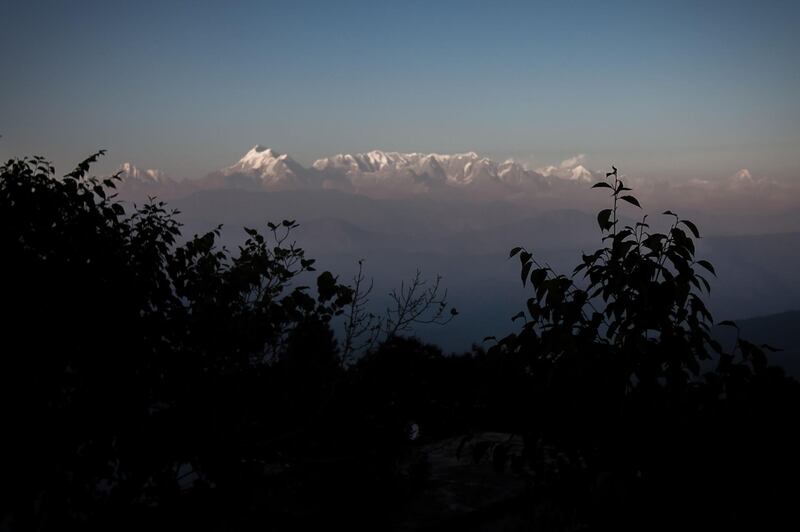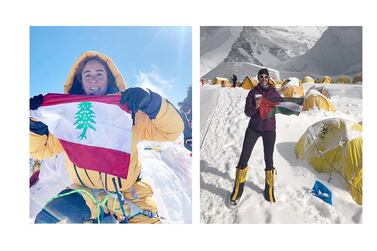Indian air force pilots spotted five bodies on Monday in the Indian Himalayas while searching for eight climbers who have been missing for a week.
Vijay Kumar Jogdande, a civil administrator in the northern state of Uttarakhand, said the bodies – which he believes are those of some of the missing climbers – were found before a rescue operation was suspended for the day because of heavy snowfall and high winds.
Thick cloud delayed the third day of the search operation by several hours on Monday before air force helicopters took off to scour an area of roughly 50 square kilometres
An operation to find the other three mountaineers will resume on Tuesday, Mr Jogdande said, cautioning that they may have been buried in an avalanche that struck the section of the mountain where they were attempting their ascent earlier this week. Government officials are consulting the Indian army and Indo-Tibetan Border Policy on how to retrieve the bodies.
“There is always a fear that people going for the rescue may get stuck there,” Mr Jogdande said.
The team, led by British climber Martin Moran, began its ascent May 13 of the previously unclimbed and unnamed peak on Nanda Devi East at 6,477 meters, according to Moran Mountain, his Scotland-based company. The team includes four Britons, two Americans, an Australian and an Indian liaison officer.
Authorities were able to reduce the search area following information provided by four British climbers rescued on Sunday from the base camp.
The team had last been in touch with base camp on May 26, according to the four members of their expedition, all British nationals, who had remained there, hemmed in by the heavy snowfall and rescued on Sunday.
Amit Chowdhary, a spokesman for the Indian Mountaineering Foundation, said that when the team at base camp stopped receiving radio updates from the other expedition team, one person went to look for the missing climbers the next day.
Mr Jogdande said the climbers rescued from base camp received first aid at a hospital in the town of Pithoragarh and were later released.
The expedition were expected to report back to base camp on May 26 but a porter stationed there reported to authorities that the group remained missing on May 31, prompting the search operation.
A statement by the Moran family on Sunday said they have been informed by the Indian Mountaineering Federation that the air search has "revealed the scale of the avalanche but no sign of the climbers, their equipment nor their tents."
"We are pressing for the search area to be widened and continued until such time as firm evidence is found to ascertain the well being or otherwise of all those in the climbing group," the statement posted on the Moran Mountain Facebook page said.
The Sydney Morning Herald named the Australian member as British-born Ruth McCance.
It quoted her husband Trent Goldsack as saying that her last communication to him had been a text message around a week ago saying: "OK at base camp."
Another of the British climbers was reported to be Richard Payne, a lecturer at the University of York.
"We remain extremely concerned for his safety and our thoughts are with his family, friends and colleagues at this difficult time," a spokesman for the British university said.
Hundreds of climbers from across the world visit India to scale mountains across the Himalayan chain, but the peaks of Nanda Devi are the toughest to scale.
The first successful ascent of the Nanda Devi summit was in 1936.
India has 10 peaks above 7,000 metres, including Kangchenjunga – the world's third highest – sandwiched between India and Nepal.
Four Indians were among 11 climbers that died climbing Mount Everest in the latest season that ended last week amid allegations of overcrowding on the world's highest peak.
Mountaineering experts criticised the government of Nepal for giving permits to anyone ready to pay $11,000, letting rookie climbers risk their lives and those of others on the slopes. A record 381 permits were issued this year.







